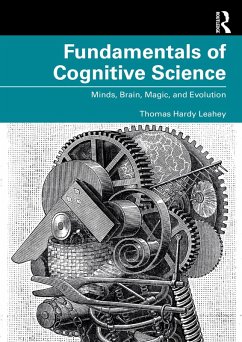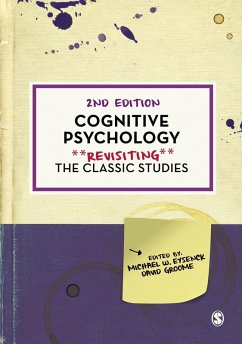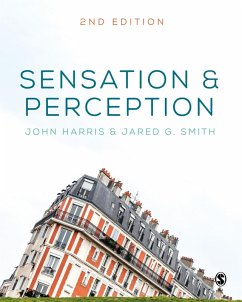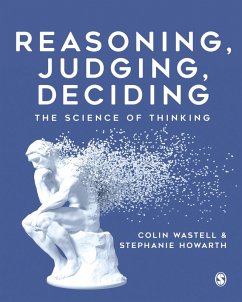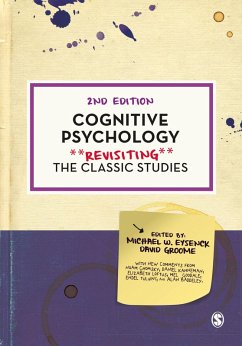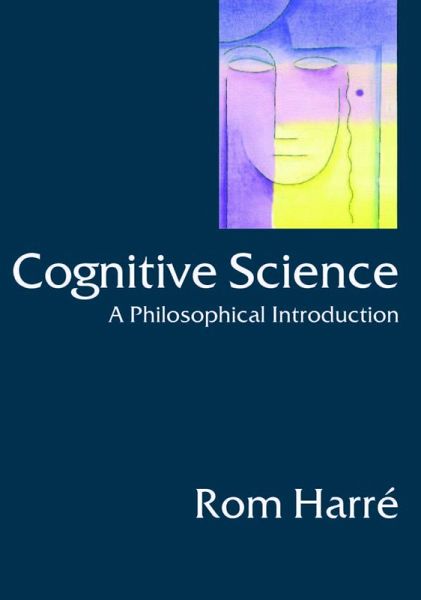
Cognitive Science (eBook, ePUB)
A Philosophical Introduction
Versandkostenfrei!
Sofort per Download lieferbar
51,95 €
inkl. MwSt.
Weitere Ausgaben:

PAYBACK Punkte
26 °P sammeln!
This is the first major textbook to offer a truly comprehensive review of cognitive science in its fullest sense. Ranging from artificial intelligence models of neural processes and cognitive psychology to recent discursive and cultural theories, Rom Harré offers an original yet accessible integration of the field. At its core, this textbook addresses the question 'How can psychology become a science?'. The answer is based on a clear account of method and explanation in the natural sciences and how they can be adapted to psychological research.Rom Harré has used his experience of both the na...
This is the first major textbook to offer a truly comprehensive review of cognitive science in its fullest sense. Ranging from artificial intelligence models of neural processes and cognitive psychology to recent discursive and cultural theories, Rom Harré offers an original yet accessible integration of the field. At its core, this textbook addresses the question 'How can psychology become a science?'. The answer is based on a clear account of method and explanation in the natural sciences and how they can be adapted to psychological research.
Rom Harré has used his experience of both the natural and the human sciences to create a text on which exciting and insightful courses can be built in many ways. The text is based on the idea that underlying the long history of attempts to create a scientific psychology there are many unexamined presuppositions that must be brought to light. Whether describing language, categorization, memory, the brain or connectionism the book always links our intuitions about how we think, feel and act in the contexts of everyday life to the latest accounts of the neural tools with which we accomplish the cognitive tasks demanded of us. Computational and biological models are used to link the discursive analysis of everyday cognition to the necessary activities of the brain and nervous system.
Fluently written and well structured, this is an ideal text for students who want to gain a comprehensive view of the current state of the art with its seeming divergence into studies of meanings and studies of neurology. The book is divided into four basic modules, with suggestions for three lectures in each. The plan is related to the overall pattern of the semester programme. The reader is guided with helpful learning points, sections of study questions for review, and key readings for each chapter.
Cognitive Science: A Philosophical Introduction, with its remarkable sweep of themes, past and present, truly introduces 'the science of the mind' for a new generation of psychology students.
Cognitive Science should be indispensable reading for students at all levels taking courses in cognitive science and cognitive psychology, and useful additional course reading in other areas such as social psychology, artificial intelligence, philosophy of the mind and linguistics.
Key Points
· First major textbook to provide a link between computational, philosophical and biological models in an accessible format for students. Presents a new vision of psychology as a scientific discipline.
· Breadth of coverage - ranging from artificial intelligence, to key themes & theories in cognitive science (past and present) - language, memory, the brain and behaviour - to recent discursive and cultural theories.
· Plenty of student features to help the student and tutor including helpful learning points, study and essay questions and key readings at the end of every chapter.
Rom Harré has used his experience of both the natural and the human sciences to create a text on which exciting and insightful courses can be built in many ways. The text is based on the idea that underlying the long history of attempts to create a scientific psychology there are many unexamined presuppositions that must be brought to light. Whether describing language, categorization, memory, the brain or connectionism the book always links our intuitions about how we think, feel and act in the contexts of everyday life to the latest accounts of the neural tools with which we accomplish the cognitive tasks demanded of us. Computational and biological models are used to link the discursive analysis of everyday cognition to the necessary activities of the brain and nervous system.
Fluently written and well structured, this is an ideal text for students who want to gain a comprehensive view of the current state of the art with its seeming divergence into studies of meanings and studies of neurology. The book is divided into four basic modules, with suggestions for three lectures in each. The plan is related to the overall pattern of the semester programme. The reader is guided with helpful learning points, sections of study questions for review, and key readings for each chapter.
Cognitive Science: A Philosophical Introduction, with its remarkable sweep of themes, past and present, truly introduces 'the science of the mind' for a new generation of psychology students.
Cognitive Science should be indispensable reading for students at all levels taking courses in cognitive science and cognitive psychology, and useful additional course reading in other areas such as social psychology, artificial intelligence, philosophy of the mind and linguistics.
Key Points
· First major textbook to provide a link between computational, philosophical and biological models in an accessible format for students. Presents a new vision of psychology as a scientific discipline.
· Breadth of coverage - ranging from artificial intelligence, to key themes & theories in cognitive science (past and present) - language, memory, the brain and behaviour - to recent discursive and cultural theories.
· Plenty of student features to help the student and tutor including helpful learning points, study and essay questions and key readings at the end of every chapter.
Dieser Download kann aus rechtlichen Gründen nur mit Rechnungsadresse in A, D ausgeliefert werden.




